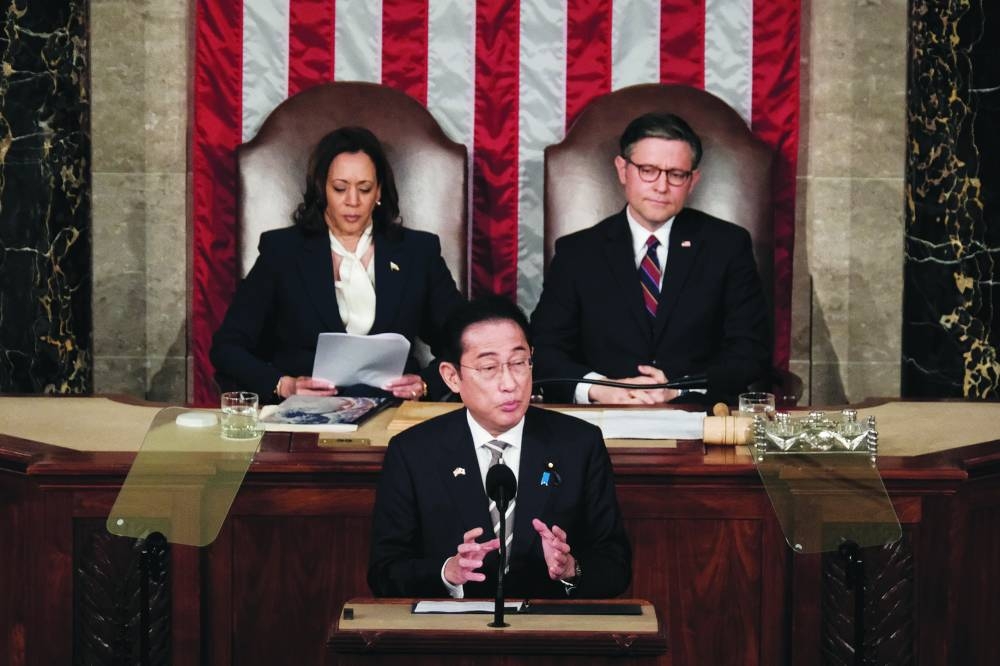Japanese Prime Minister Fumio Kishida on Thursday called on Americans to overcome their “self-doubt” as he offered a paean to US global leadership before a bitterly divided Congress.
Warning of risks from the rise of China, Kishida said that Japan - stripped of its right to a military after World War II - was determined to do more to share responsibility with its ally the US.
“As we meet here today, I detect an undercurrent of self-doubt among some Americans about what your role in the world should be,” Kishida told a joint session of the House of Representatives and Senate during a state visit to Washington. “The international order that the US worked for generations to build is facing new challenges, challenges from those with values and principles very different from ours,” Kishida said.
Kishida said he understood “the exhaustion of being the country that has upheld the international order almost single-handedly” but added: “The leadership of the US is indispensable.”
“Without US support, how long before the hopes of Ukraine would collapse under the onslaught from Moscow?” he asked.
“Without the presence of the US, how long before the Indo-Pacific would face even harsher realities?” While he was careful not to touch on US domestic politics, Kishida’s address comes amid a deadlock in Congress on approving billions of dollars in additional military aid to Ukraine, due to pressure from hard-right Republicans aligned with presidential contender Donald Trump.
Kishida met with President Joe Biden where they pledged to step up co-operation, including with new three-way air defences involving the US, Japan and Australia.
Kishida said that China’s military actions “present an unprecedented, and the greatest, security challenge.”
Kishida’s speech, from the dais where Biden delivered a raucous State of the Union address a month ago, marked a rare moment of bipartisan unity in Congress.
Lawmakers across party lines offered repeated standing ovations as Kishida reaffirmed support for Ukraine, warned of Chinese influence and highlighted Japanese investment in the US.

Japanese Prime Minister Fumio Kishida addresses a joint meeting of Congress, as US Vice-President Kamala Harris and House Speaker Mike Johnson listen, at the US Capitol in Washington, US, on Thursday.
